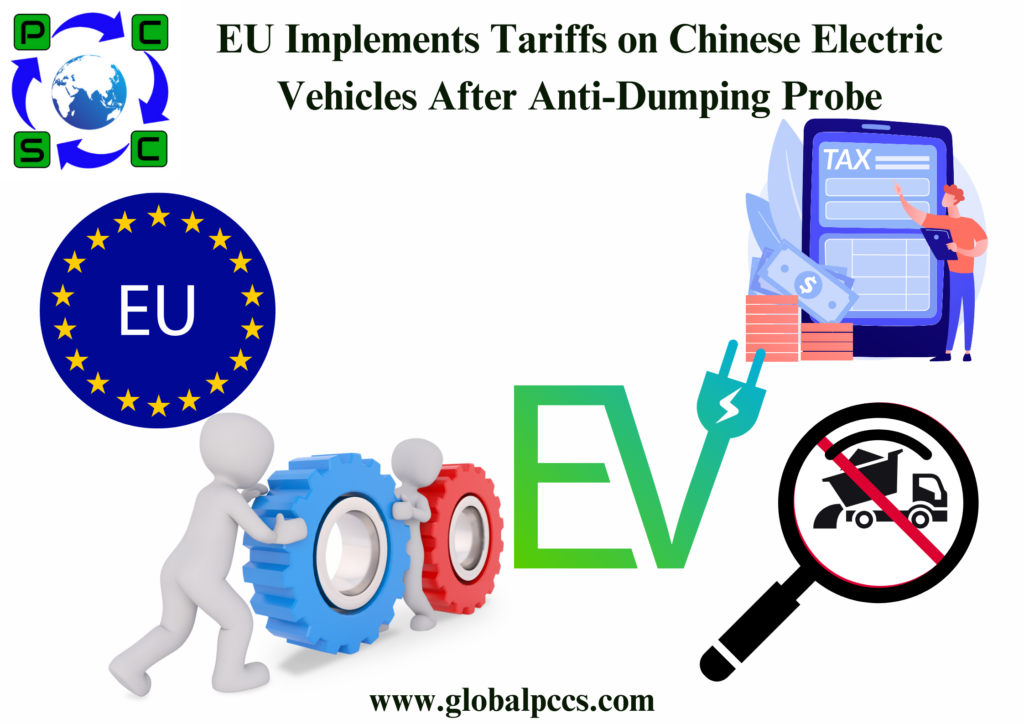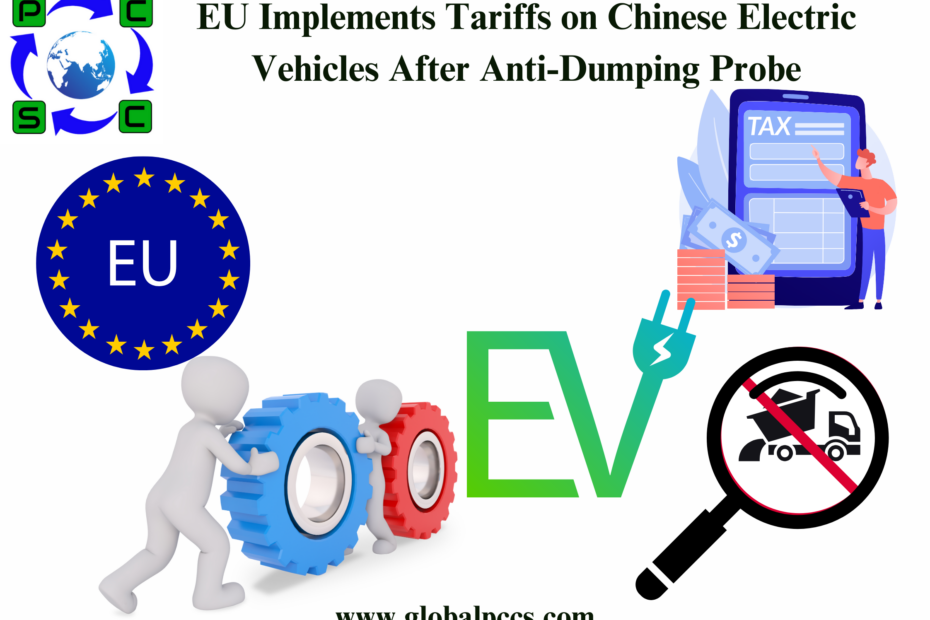 The European Commission announced today the imposition of duties on imports of battery electric vehicles (BEVs) from China, effective July 5, after concluding that European BEV manufacturers face a threat from unfair subsidization provided to the Chinese BEV value chain.
The European Commission announced today the imposition of duties on imports of battery electric vehicles (BEVs) from China, effective July 5, after concluding that European BEV manufacturers face a threat from unfair subsidization provided to the Chinese BEV value chain.
The European electric vehicle market is anticipated to grow rapidly over the next several years, with regulations in place requiring a 100% reduction in CO2 emissions from new cars and vans registered in the EU from 2035, as well as a similar rule in place in the UK. Sales of all-electric vehicles currently account for approximately 13% of the EU car market.
The new tariffs follow the launch in October 2023 by the Commission of an anti-subsidy investigation on imported electric vehicles from China, after finding that a surge in heavily subsidized EVs posed a threat to the EU’s automotive industry. The investigation followed months of pressure from France to initiate an anti-dumping probe against EV companies in China, although other countries such as Germany warned that the move could spark a trade war.
EU Commission Ursula von der Leyen announced plans for the investigation in her State of the European Union (SOTEU) speech in September, in which she said that “global markets are now flooded with cheaper Chinese electric cars,” with prices that are being kept artificially low through “huge state subsidies” that are distorting the market.
The new tariffs include individual duties applied to specific automakers including BYD at a 17.4% duty, Geely at 19.9%, and SAIC at 37.6%. Other BEV producers that cooperated in the investigation but were not sampled will be subject to a 20.8% duty, while other non-cooperating companies will be subject to a 37.6% duty.
The new tariffs follow a similar action in the U.S., with the Biden administration announcing in May that it would raise the tariff rate on EVs from China to 100% from the prior 25% rate, and on lithium-ion EV batteries and on battery parts from 7.5%% to 25%. According to a White House statement, the tariffs were aimed at countering China’s “unfair trade practices,” including forced technology transfers, theft of intellectual property, and use of overcapacity to flood markets with cheap products.
The Commission added that it has intensified consultations with China over the past few weeks, “with a view to reaching a WTO-compatible solution, which adequately addresses the concerns raised by the European Union.”








 Authorised IMDS & CDX Training & Consulting partner for
Authorised IMDS & CDX Training & Consulting partner for






